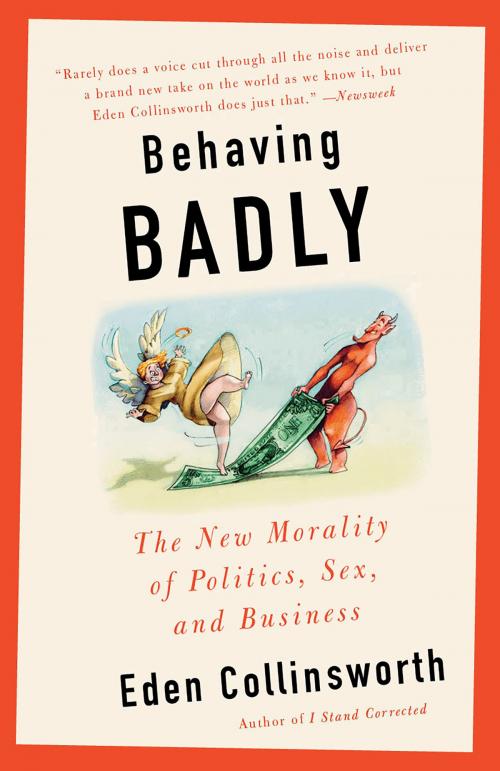Behaving Badly
The New Morality in Politics, Sex, and Business
Nonfiction, Health & Well Being, Psychology, Social Psychology, Religion & Spirituality, Philosophy, Ethics & Moral Philosophy, Social & Cultural Studies, Social Science, Cultural Studies, Popular Culture| Author: | Eden Collinsworth | ISBN: | 9780385540940 |
| Publisher: | Knopf Doubleday Publishing Group | Publication: | April 4, 2017 |
| Imprint: | Anchor | Language: | English |
| Author: | Eden Collinsworth |
| ISBN: | 9780385540940 |
| Publisher: | Knopf Doubleday Publishing Group |
| Publication: | April 4, 2017 |
| Imprint: | Anchor |
| Language: | English |
What is the relevance of morality today? Eden Collinsworth enlists the famous, the infamous, and the heretofore unheard-of to unravel how we make moral choices in an increasingly complex—and ethically flexible—age.
To call these unsettling times is an understatement: our political leaders are less and less respectable; in the realm of business, cheating, lying, and stealing are hazily defined; and in daily life, rapidly changing technology offers permission to act in ways inconceivable without it. Yet somehow, this hasn’t quite led to a complete free-for-all—people still draw lines around what is acceptable and what is not. Collinsworth sets out to understand how and why. In her intrepid quest,she squares off with a prime minister, the editor of London’s Financial Times, a holocaust survivor, a pop star, and a former commander of the U.S. Air Force to grapple with the impracticality of applying morals to foreign policy; precisely when morality gets lost in the making of money; what happens to morality without free will; whether “immoral” women are just those having a better time; why celebrities have become the new moral standard-bearers; and if testosterone is morality’s enemy or its hero.
What is the relevance of morality today? Eden Collinsworth enlists the famous, the infamous, and the heretofore unheard-of to unravel how we make moral choices in an increasingly complex—and ethically flexible—age.
To call these unsettling times is an understatement: our political leaders are less and less respectable; in the realm of business, cheating, lying, and stealing are hazily defined; and in daily life, rapidly changing technology offers permission to act in ways inconceivable without it. Yet somehow, this hasn’t quite led to a complete free-for-all—people still draw lines around what is acceptable and what is not. Collinsworth sets out to understand how and why. In her intrepid quest,she squares off with a prime minister, the editor of London’s Financial Times, a holocaust survivor, a pop star, and a former commander of the U.S. Air Force to grapple with the impracticality of applying morals to foreign policy; precisely when morality gets lost in the making of money; what happens to morality without free will; whether “immoral” women are just those having a better time; why celebrities have become the new moral standard-bearers; and if testosterone is morality’s enemy or its hero.















